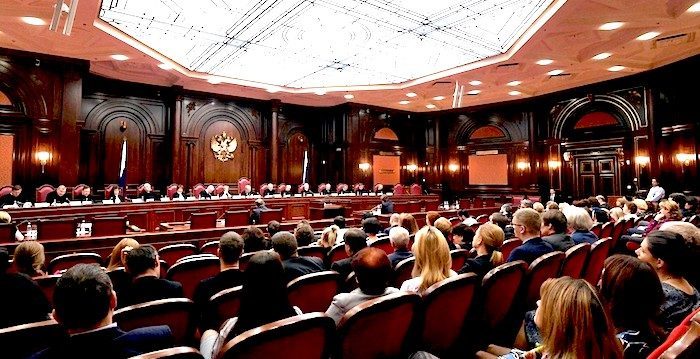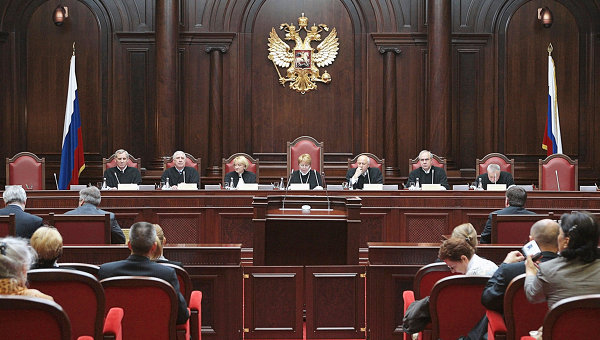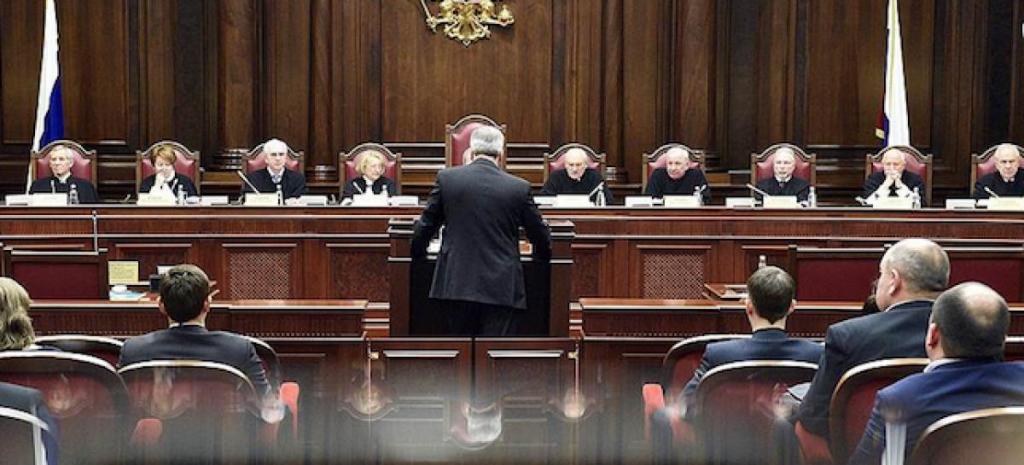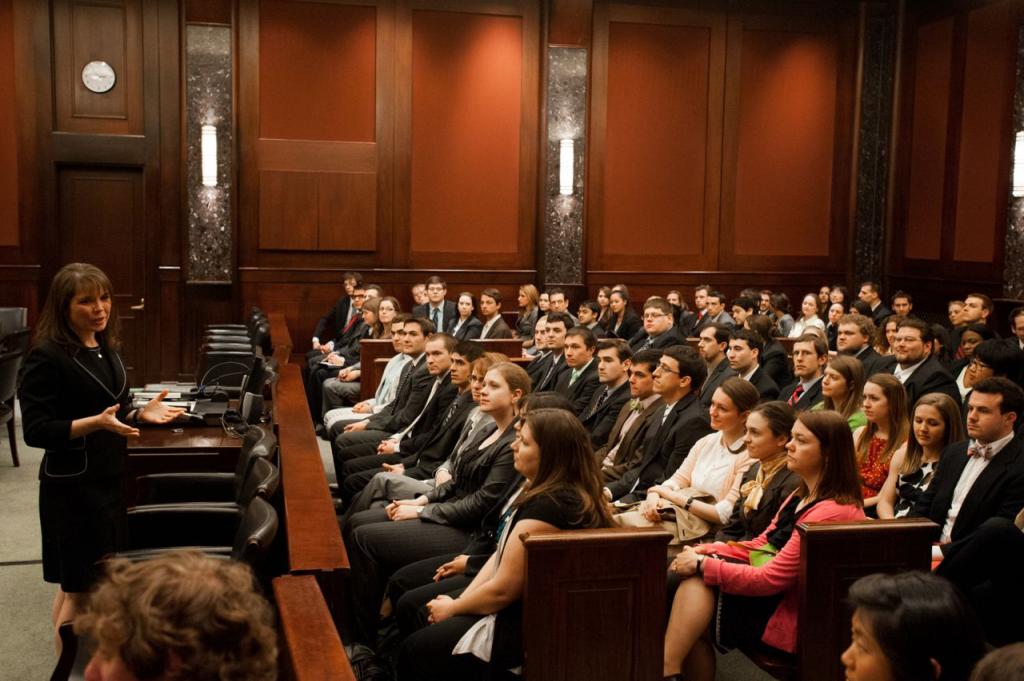Can a party that has been denied to satisfy its own interests in all judicial instances passed apply somewhere to protect the rights and review previous decisions? Yes, such an opportunity does exist - it is the design of citizens' appeals to the Constitutional Court of the Russian Federation (CC RF). Let us consider in the article the grounds for writing such a document, the subtleties of its preparation, as well as some recommendations provided by experienced practicing lawyers.

General concept
Before considering the subtleties of writing an appeal to the Constitutional Court, it is worth determining the general concept of such a document, which is presented in modern legislation.
An appeal to the Constitutional Court of the Russian Federation is a request, petition or complaint drawn up in writing. The appeal is based on dissatisfaction with the decision made by other judicial instances of the Russian Federation. Of course, this case should have not only legal, but also constitutional significance, and it should also be subject to jurisdiction of the Constitutional Court of the Russian Federation.
Reasons for consideration of the case in the Constitutional Court
The main reason for considering the case in the Constitutional Court is the presence of an appeal to the Constitutional Court of citizens, organizations or state structures.
As for the basis for conducting the consideration of the case, such is the uncertainty in a specific issue of a legal nature, as well as in the application of the rule of law. In this situation, it is required to establish the conformity of a certain provision of a particular act of a regulatory nature with the Constitution and laws applicable at the federal level.

Normative regulation
Considering the normative regulation of the filing of applications by citizens of the Russian Federation, it is worth noting that such a request (complaint or application) should be submitted only in strict accordance with the norms of the current legislation. Regulatory acts that regulate certain aspects of issues related to the creation and submission of petitions to the Constitutional Court of the Russian Federation are currently:
- Constitution of the Russian Federation.
- Federal Law "On the Constitutional Court".
- The tax code of the Russian Federation.
In some individual cases, the process can be regulated by some other acts, depending on the subject in relation to which the appeal is being created.
When drawing up such appeals, applicants can refer not only to the usual sources of legal norms, but also to other acts, among which are often present:
- references to foreign practice in similar processes;
- legal positions of the Constitutional Court.

Subjects of appeal
Who can file appeals with the authority in question? It is worth noting that this opportunity is provided to all citizens of the country and foreigners whose legitimate interests and rights were violated by applying a certain rule of law in a particular case. In addition, on the basis of the provisions of the Constitution of the Russian Federation, the right to appeal to the Constitutional Court with complaints and petitions is granted not only to individuals, but also to entire organizations, as well as bodies.
An additional number of subjects for filing such an appeal should include government bodies and government representatives. In a number of those are:
- President of the Russian Federation;
- chambers of the Federal Assembly;
- bodies of the Armed Forces of the country;
- The Supreme Arbitration Court of the Russian Federation (Supreme Arbitration Court);
- Government of the Russian Federation;
- executive bodies of individual state entities;
- legislative bodies of the country's subjects.
Types of calls
Any appeal of citizens to the Constitutional Court should be made out in electronic form and exactly comply with the established requirements. The current constitutional legislation of the country determines the possibility of filing such a document in three forms:
- request;
- petition;
- a complaint.
Let us consider in more detail the features characteristic of each of them.
As practice shows, a request is the most common form of appeal to the instance in question. It is worth noting that it can be submitted by representatives of state bodies, as well as deputies who pursue the goal of reviewing certain cases in strict accordance with the norms of the law and the correctness of their application. Often, the Arbitration Court makes requests to the Constitutional Court.
The main purpose of such an appeal is the need for clarification on a particular norm of the law, which is directly related to the case under consideration. The legislator has determined that it is an appeal in the form of a request that is necessary if the president is charged with committing serious criminal acts, as well as high treason.
In cases where the authorities or individual public servants have disputes regarding a certain competence, they can apply to the instance in question. As for ordinary citizens of the country, their associations, as well as foreigners, their appeals should be in the form of a complaint.
Call Requirements
Modern legislation establishes a number of requirements that must be met in the process of writing a written appeal. A detailed list of such is indicated in the content of Article 37 of the Federal Law "On the Constitutional Court".
The content of this article states that any appeal should be sent to the e-mail of the Constitutional Court of the Russian Federation, specially created to receive such documents. The document must be submitted exclusively in electronic form. When writing it, you must use a special electronic form, which is available on the official website of the instance.
If a person does not have the ability to fill out a unified form, then he has the right to file an appeal in the usual document format for him, strictly observing all established requirements. It should be noted that such a document must necessarily have a qualified electronic signature of a reinforced type. In this situation, correspondence with the applicant can be carried out in electronic format, moreover, in the manner indicated by the Rules of Procedure of the Constitutional Court.
Of the total number of basic requirements established in relation to appeals to the instance in question, it is worth highlighting those that relate to the structure of the document. So, on the basis of the current rules, it must be present:
- body to which the appeal is directed (in this case, the Constitutional Court of the Russian Federation);
- name of the applicant (in cases where the appeal is carried out through a representative, his data and the grounds for the representative office must be indicated);
- name of the authority that issued the act to be verified;
- current legislation on the basis of which the appeal is made;
- source of the act to be verified, its number, date of adoption and publication;
- direct data of the disputed norm to be considered;
- the position that the applicant advocates on the question raised, as well as its justification, supported by the norms presented in the acts of the current legislation;
- claim of the applicant;
- list of documents attached to the filed complaint (petition or request).
The main requirement put forward to the complaint under consideration is its admissibility.

Admissibility
Any complaint submitted by the Constitutional Court must be admissible.The appeal is considered admissible only in two cases:
- the application of a certain norm of the law was carried out in court, which is reflected in the decision put forward in the case;
- the law under consideration to one degree or another affects the freedoms and human rights of the constitutional sphere.
Moreover, any applicant wishing to submit an application must do so within certain time limits - no later than a year after the decision on the case is made. In the event that the filed complaint, at least by one parameter, does not correspond to the concept of its admissibility, the court will reject it and will not engage in consideration.
What documents may be attached to the appeal
The requirements specified for the preparation of the appeal to the Constitutional Court indicate that its content may reflect data on documents acting as annexes to the main act. What can be attributed to such applications? This list includes:
- texts of acts subject to assessment of compliance with the law;
- a document confirming the fact of payment of state duty;
- in the event that some documents are presented in any other language other than Russian, then their notarized translations must be attached to the appeal;
- in the event that a person submits an appeal not personally, but through a representative, among the additions must be present a power of attorney to carry out this action.
Depending on individual situations, the types of acts under consideration may be accompanied by testimonies of witnesses, as well as conclusions made by experts. If there are any, those who have made conclusions may be called to meetings held by the Constitutional Court to consider the issues indicated in the appeal.
Applicants should pay attention to the fact that when submitting an application in electronic form, all accompanying documents must be presented in the same way, in one file with the main application or request.

About state duty
According to the legislator, consideration of applications to the Constitutional Court is carried out only if they fully comply with all established requirements, as well as if the number of attached documents confirms the fact of payment of the state duty.
As for the features of the processes of making the amount of the fee, its refund, as well as the offset, they are regulated by the norms of the Tax Code. In accordance with its provisions, the amount of such a fee is currently 450 rubles. It can be paid both through terminals and at the cash desks of Russian banks. It is worth noting that this opportunity is also available when visiting the "State Services" portal.
If we pay more detailed attention to the size of the state duty, then the Tax Code provides several options for its size. Consider them in more detail:
- for citizens of the state and foreigners - 450 rubles;
- for organizations - 6,750 rubles .;
- in case of sending a request or request - 6,750 rubles;
In cases where appeals are submitted to the Constitutional Courts of the constituent entities of the country, the amount of state duty is significantly reduced. So, he is:
- for individuals - 350 rubles .;
- for organizations - 4,500 rubles.

Who is exempted from paying a fee for making an appeal
In accordance with the norms of the current legislation, certain groups of persons can be fully or partially exempted from paying the fee for consideration of the appeal by the Constitutional Court in the manner prescribed by law. Among those who, on the basis of modern constitutional norms, are completely exempted from paying the type of contribution considered include:
- public organizations of disabled people;
- Heroes of the Soviet Union;
- WWII veterans;
- Heroes of Russia;
- Full Knights of the Order of Glory;
- invalids of the Second World War.
In the event that the appeal is submitted by a person exempted by law from paying the type of contribution considered, instead of a receipt confirming the payment, he must be presented with a document confirming the right to receive benefits.
Particular attention should be paid to the fact that some persons who may submit requests and petitions to this authority are exempted from paying the type of duty under consideration. These include:
- Supreme Court;
- justices of the peace;
- Court of Arbitration;
- courts of general jurisdiction;
- government bodies of individual subjects of the country;
- federal authorities;
- local authorities.
How to reinforce a complaint: legal advice
The current practice of exercising by citizens their own right to appeal to the Constitutional Court of the Russian Federation shows that when submitting a complaint or petition, you should definitely pay attention to the need to emphasize its importance and validity, since otherwise the court, as a rule, makes its decision not in favor of the plaintiff .
The recommendations of practicing lawyers noted that in order to strengthen his own complaint, in addition to strictly observing the established procedure for applying to the court in question, the applicant should have turned his attention to specially developed methods for this, which are completely legal.
The Constitutional Court, which considers the appeal, pays attention to its validity. In order to emphasize the presence of such, the applicant should indicate in the text of the document references to certain provisions of the Constitutional Court adopted earlier on similar issues, as well as the ECHR (Human Rights Court). Also, in parallel, some references to foreign practice of courts in resolving similar issues may be provided.
In addition, and in order to draw attention to the illegality of the contested norm, some lawyers recommend pointing out all the factors that contradict it and are present in other legislative sources. Among these, there may be both completely contradictory and ambiguous provisions that cause a lot of controversy. One can even note the contradiction of the disputed norm to the legal positions of the Supreme and Arbitration Courts, as well as the European Court of Human Rights.

To enhance the appeal, most lawyers advise paying attention to the formalism of the courts in the text of the document. Unfortunately, today there is excessive formalism in the work of all courts in the territory of the Russian Federation. Special attention can also be paid to the violation of the balance of interests and rights that is present in the contested norm. Practice shows that in certain cases in the content of the appeal it will be appropriate to note a violation of some of the prerogatives of the Constitutional Court in the rule in question.
